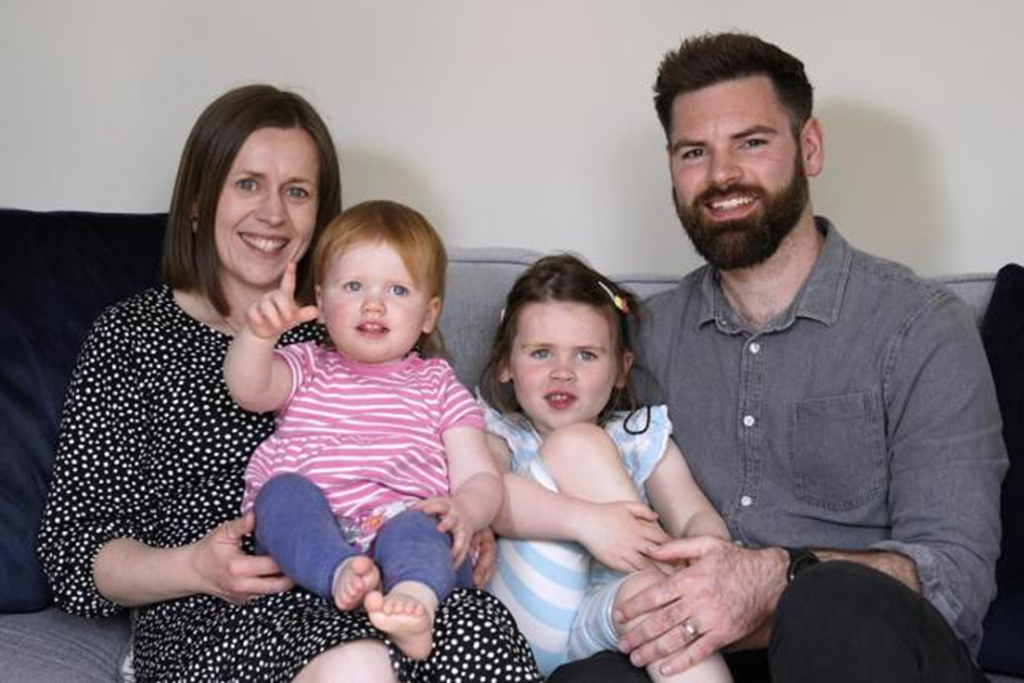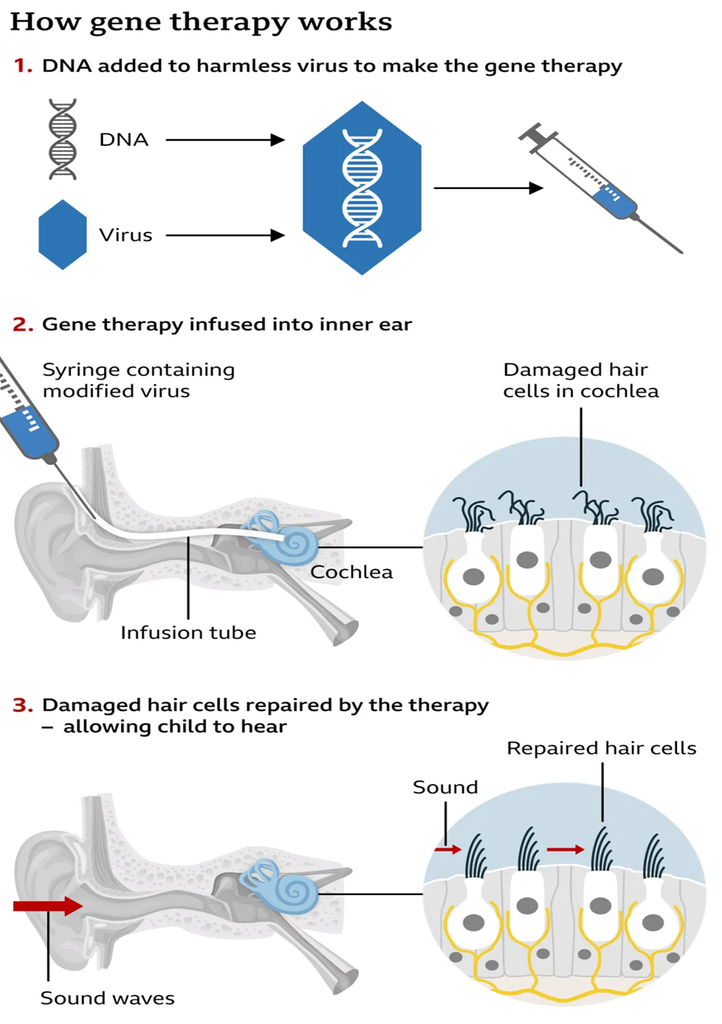Opal Sandy, treated just before her first birthday, now hears whispers and is beginning to speak, saying “Mama,” “Dada,” and “uh-oh.” This revolutionary gene therapy, infused directly into the ear, replaces the faulty DNA responsible for Opal’s inherited deafness. Opal is part of a trial across the UK, US, and Spain, and similar hearing restoration treatments are being explored worldwide, including in China, for the same OTOF gene mutation.
The results astounded Opal’s parents, Jo and James, from Oxfordshire. They describe the experience as a mind-blowing journey. The decision to allow Opal to be the first to test Regeneron’s groundbreaking treatment was difficult, but they felt it was a unique opportunity.
“It was really scary, but we felt we were given a unique opportunity,” Jo shared in an exclusive interview with me for a popular news channel.
About Opal’s Hearing Restoration Story

Opal’s five-year-old sister, Nora, also has the same deafness. However, she has been thriving with the help of an electrical cochlear implant. Unlike a hearing aid that amplifies sound, this implant creates the ‘sensation’ of hearing by directly stimulating the auditory nerve, bypassing the damaged sound-sensing hair cells in the cochlea, the inner ear’s crucial sound-processing hub.
This bypasses the damaged sound-sensing hair cells in the cochlea, the inner ear’s crucial sound-processing hub.
What Noise Sounds Like with a Cochlear Implant?
In contrast, the therapy employs a modified, harmless virus to insert a functional copy of the OTOF gene into these cells.
Opal received the treatment in her right ear under general anesthesia while a cochlear implant was placed in her left.
A few weeks later, she could hear loud sounds, like clapping, in her right ear.
Six months later, doctors at Addenbrooke’s Hospital in Cambridge confirmed that her right ear had nearly normal hearing for soft sounds, including whispers.
How Gene Therapy Works?

“It’s incredible to see her responding to sound,” chief investigator and ear surgeon Prof. Manohar Bance told a news channel. “It’s truly a joyous time.”
Experts are optimistic that this groundbreaking therapy could potentially treat other forms of profound hearing loss.
It’s important to note that genetics play a significant role, accounting for over half of hearing loss cases in children. Prof. Bance’s trial is a significant step towards using gene therapy to address more common types of hearing loss.
“My vision is to use gene therapy in young children to restore their hearing, eliminating the need for cochlear implants and other technologies that require replacement,” he shared.
Hearing loss due to a variation in the OTOF gene often goes undetected until speech delays become noticeable in children aged two or three. However, families at risk can take control of the situation by accessing genetic testing through the NHS, empowering them with crucial information.
Prof. Bance explained, “Restoring hearing at a younger age is crucial because the brain’s plasticity, or adaptability, starts to diminish around age three.”
Opal’s case and other trial data are showcased at the American Society of Gene and Cell Therapy conference in Baltimore, USA.
Martin McLean from the National Deaf Children’s Society emphasized the importance of early intervention, stating, “With the right support from the start, deafness should never be a barrier to happiness or fulfillment.”
Disclaimer Statement: This information is from a third-party health news channel. The opinions expressed here belong to the respective authors/entities and do not reflect the views of Docquity. Docquity does not assure, endorse, or vouch for any of the content and bears no responsibility for it in any way. It is essential to take all necessary steps to ensure the information and content provided are accurate, current, and verified. Docquity disclaims any express or implied warranties related to the report and its contents.
References
Pioneering gene therapy restores UK girl’s hearing [Internet]. Accessed on June 05, 2024. Available at:https://www.bbc.com/news/health-68921561
About Docquity
If you need more confidence and insights to boost careers in healthcare, expanding the network to other healthcare professionals to practice peer-to-peer learning might be the answer. One way to do it is by joining a social platform for healthcare professionals, such as Docquity.
Docquity is an AI-based state-of-the-art private & secure continual learning network of verified doctors, bringing you real-time knowledge from thousands of doctors worldwide. Today, Docquity has over 400,000 doctors spread across six countries in Asia. Meet experts and trusted peers across Asia where you can safely discuss clinical cases, get up-to-date insights from webinars and research journals, and earn CME/CPD credits through certified courses from Docquity Academy. All with the ease of a mobile app available on Android & iOS platforms!







